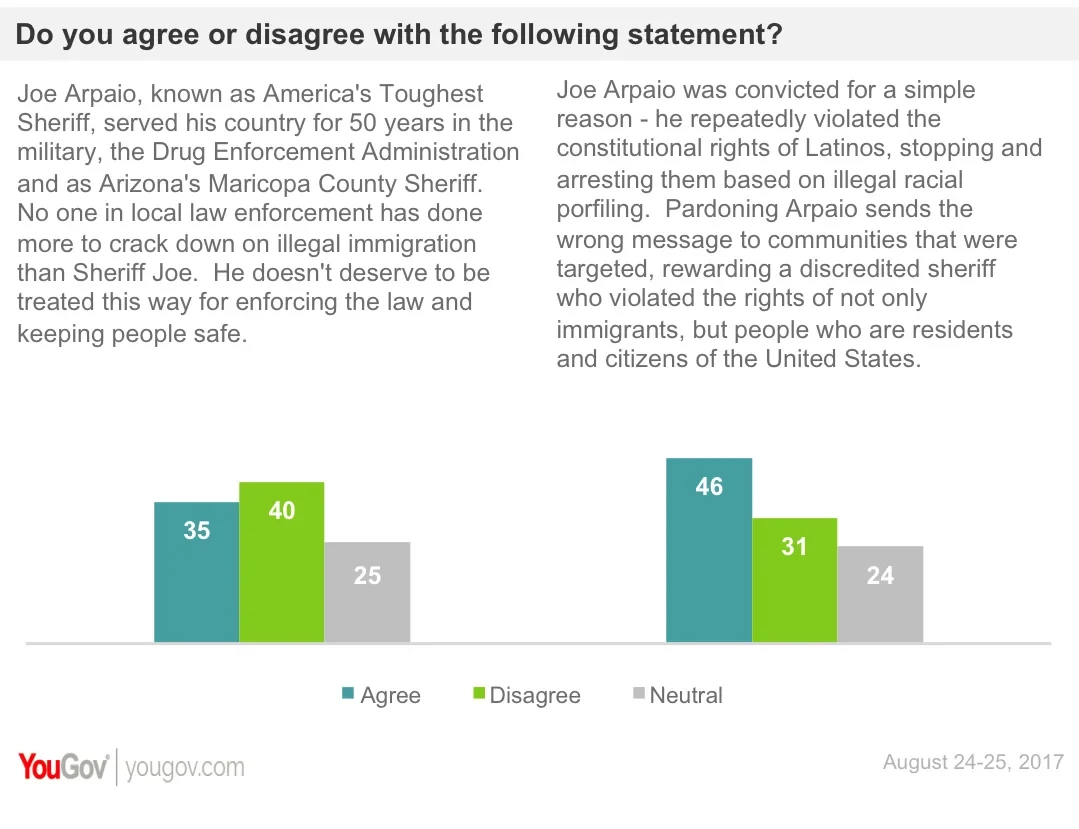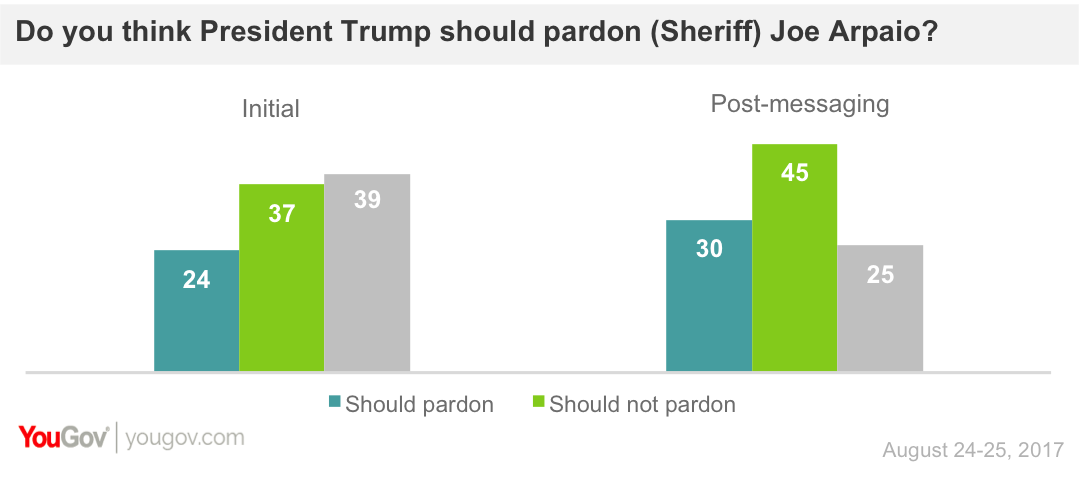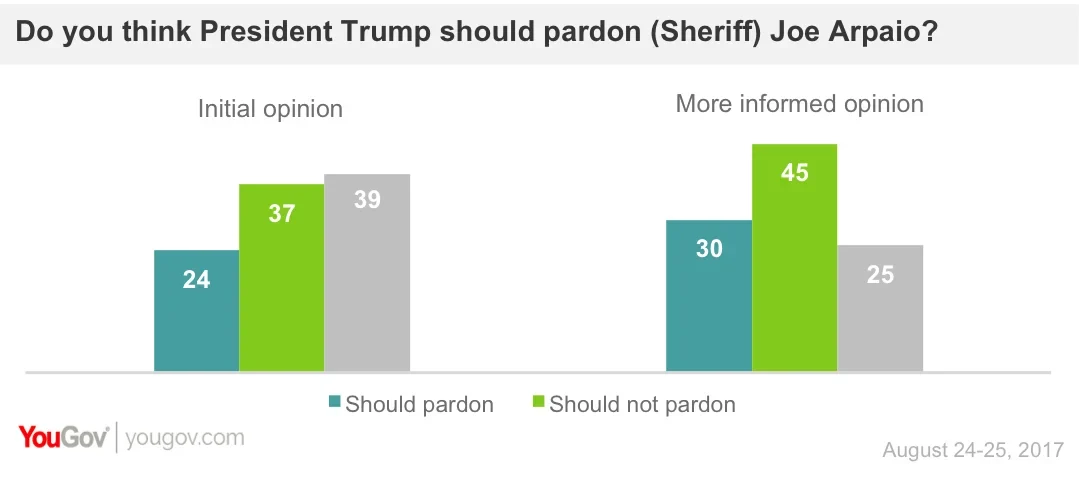Little support for a pardon before it was issued, but few were paying close attention
On Thursday and Friday, before President Trump pardoned former Maricopa county Sheriff Joe Arpaio, YouGov polled 1,000 Americans about what they thought should be done. Before supplying any information about the details of the Arpaio case, 24% said they were in favor of a pardon and 37% were opposed.
However, this is the type of question where opinion can change quickly as the public learns more about the issue. Despite widespread media coverage and Trump's hint of a pardon on Tuesday, a majority of the public said they knew "little" or "nothing at all" about the Arpaio case. To see what might happen if people were exposed to arguments for and against the pardon--as will inevitably happen--we asked our sample whether they agreed or disagreed with pro and con arguments.
The pro-pardon wording was based on White House talking points: Sheriff Joe Arpaio, known as America’s Toughest Sheriff, served his country for 50 years in the military, the Drug Enforcement Administration and as Arizona's Maricopa County Sheriff. No one in local law enforcement has done more to crack down on illegal immigration than Sheriff Joe. He doesn’t deserve to be treated this way for enforcing the law and keeping people safe.
The anti-pardon statement mirrored language used by Arpaio’s opponents: Sheriff Joe Arpaio was convicted for a simple reason - he repeatedly violated the constitutional rights of Latinos, stopping and arresting them based on illegal racial profiling. Pardoning Arpaio sends the wrong message to communities that were targeted, rewarding a discredited sheriff who violated of the rights of not only immigrants, but people who are residents and citizens of the United States.

Although the anti-pardon argument gained higher acceptance than the pro-pardon argument, it appears unlikely that one side or the other will benefit from as the public learns more. After exposing respondents to these two sets of arguments, we re-asked whether Trump should pardon Arpaio. The percentage "not sure" declined by 14% and the percentages favoring and opposing the pardon grew by 6% and 8%, respectively.


The Arpaio pardon, like many issues, splits mostly along party lines. Initially, Republicans were supportive (with 44% in favor and 17% opposed) and Democrats opposed (by a margin of 57% to 8%). After voters heard from both sides, opinions toward the pardon hardened considerably. Opposition among Democrats increased by 18% while support fell by 1%. Among Republicans, the pattern was reversed. Support increased by 20% and opposition fell by 4%. Among Independents, both support and opposition increased by small amounts (4% and 7%, respectively) as the percentage "not sure" fell by 12%.
| Initial Opinion | Final Opinion | |||||
|---|---|---|---|---|---|---|
| Favor | Oppose | Not sure | Favor | Oppose | Not sure |
Democrat | 8% | 57% | 35% | 7% | 75% | 18% |
Republican | 44% | 17% | 38% | 64% | 13% | 23% |
Independent | 29% | 37% | 35% | 33% | 44% | 23% |
Trump's pardon will play well to his base, but is unlikely to help him much with swing voters and probably make him even less popular with Democrats. This is yet another issue that polarizes Americans along party lines.
Feel free to explore the data yourself with our interactive data tool below.











